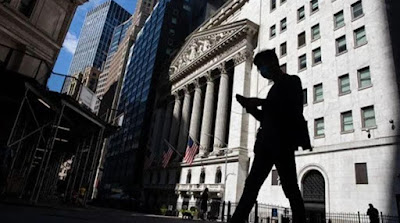Regulators put the technology giants in hot water, but their stocks will not continue to be sluggish.
In the three days at the end of July, American technology giants performed brilliantly. Apple, Microsoft, Alphabet (the parent company of Google), Amazon and Facebook thrive in the epidemic, and their latest earnings reports confirm this. In the latest quarter from April to June this year, these five companies achieved total revenues of US$332 billion, an increase of 36% year-on-year, and their earnings were better than expected. Unexpectedly, in addition to Alphabet, the stocks of several companies triggered a wave of selling after their earnings were announced.
This negative reaction embodies the paradox surrounding the major American technology companies. While products are being used more, big technology companies themselves are increasingly disgusted. Encouraged by voters from both parties, regulators and legislators are reviewing every business of big technology companies and threatening to take strong measures to curb their power. Mark Mhaney, an analyst at Evercore ISI, predicts that the drag on the stocks of major technology companies from the regulatory review has reached 10% of the stock prices.
After booming in the epidemic, large companies are facing the challenges brought about by the economic rebound, because companies and consumers may return to their original, non-digital habits.
Big technology companies have encountered dangerous moments, but this will not last. The five super giants still maintain the best business models in the world, and their stocks seem to be cheaper. Although regulatory resistance will take some time to ease, investors should still actively buy.
In general, the five technology giants, as large companies that are far ahead of the US stock market, help investors invest in the most important trends of the global economy: digital transformation and cloud computing, as well as future communication, entertainment, business and work.
The cloud alone can provide momentum for Microsoft, Amazon, and Alphabet.
"The cloud is the reason I own the shares of these three companies," said Walter Price, head of the technology investment team at mutual fund company Allianz Global Investors. "Global companies are shifting computing to the cloud. There will be dividends that will last for decades, and they can sell a lot of things to customers for a long time."
Price has been involved in fund operations in Allianz for nearly 50 years. He believes that IBM is a precedent, the company once dominated technology spending in the computer mainframe era.
There is an old saying that you will not be fired for buying IBM. Price said that this sentence now applies to Microsoft. IBM's secret at the time was to sell more software and more services to more customers. Every major technology company is now following this gameplay.
Of course, there are still challenges in the short term. The post-epidemic era has the most obvious impact on Amazon, and the growth of e-commerce has slowed down than before. Apple's hardware boom triggered by the epidemic is also fading. The hardware business of all major technology companies suffers from shortages of parts and high transportation costs. Apple has announced that iPhone production may be affected by a shortage of parts.
Another concern is that the dominance of big technology companies has led some investors to believe that valuations have peaked. In terms of market value, Apple (US$2.4 trillion), Microsoft (US$2.2 trillion), Alphabet (US$1.8 trillion), Amazon (US$1.6 trillion), and Facebook (US$1 trillion) together account for 23.3% of the S&P 500 Index.
Of course, skeptics have been waiting for the law of large numbers to take effect for years. At the end of 2019, the market value of large technology companies accounted for 18% of the S&P 500 index. Since then, each stock has risen by at least 70%.
Big technology companies are indeed devouring the stock market, but technology is also ruling the world, and investing in five super giants is still the best way to follow this trend.
However, the threat from regulation is real, but there are signs that the risk is already reflected in the stock price. It can be seen that when a federal judge dismissed the Federal Trade Commission’s antitrust lawsuit in June, Facebook’s stock price rose by 4% in retaliation (the Federal Trade Commission filed a revised version of the lawsuit last Thursday).
Washington is strengthening technology regulation, but the court may dismiss the most radical part of it. Some investors believe that even in the worst case of forced dissolution, it may unlock value and benefit shareholders.
Long-term business trends can offset regulatory risks. For example, 5G mobile networks are rapidly rolling out, which will promote smartphone sales and increase the use of social networks and cloud applications.
In addition, there are unexpected surprises for investors that have not yet been reflected in the price. If Facebook’s CEO Mark Zuckerberg foresaw the “Metaverse” of mixed reality, all major technology companies would benefit. According to Zuckerberg's vision, people will work, socialize, and trade on the wider Internet.
While Alphabet may rule the future of self-driving cars through Waymo, Apple is trying to break into the car market. Both Amazon and Apple are trying to enter the healthcare and fitness fields. Facebook hasn't even tried to make money on WhatsApp, its global messaging platform with 2 billion users.
All major technology companies have such investment potential, but each company has different opportunities and challenges.





No comments:
Post a Comment